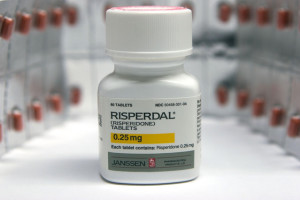Injury Lawyer News – December 6, 2013
By Jacky Gale
Recently, internal documents were released that strongly suggested Johnson & Johnson, the manufacturer of Risperdal, concealed evidence that linked the drug to serious side effects.
These Risperdal side effects became evident in a clinical trial dubbed RIS 232. The internal documents, which were released by the U.S. Department of Justice (DOJ), include emails that involve Janssen, a subsidiary of Johnson & Johnson.
Researchers warned of the consequences in emails
One of the emails sent by a clinical researcher in August of 2003 claims that Janssen had failed to publicize the results of clinical trial RIS 232, despite having “a moral and ethical responsibility to publish results quickly and in a way that can be understood and makes clinical sense.” The researcher went on to note that in addition to a need to publish the clinical data, Janssen should also publicize the “safety data, including events that have been labeled in the past as ‘cerebrovascular adverse events’ and death” with the use of Risperdal.
The name of the researcher and the recipient of the email were redacted. However, the author reminds the recipient extensively of his or her involvement in the research, noting that the author was involved in numerous meetings, protocol development, training events, early trial consultation, and investigator meetings.
The author goes on to write, “Respecting fully any confidentiality agreement that I have with Janssen, it is obvious to me and to others who may not be so bound and who have learned about the data that this trial is on its face nearly completely negative… because a substantial proportion of the subjects who were enrolled should not have been enrolled, and would not have been prescribed antipsychotics if they had been ordinary clinic patients.” The author goes on to state that although Janssen had several opportunities to present this information, it repeatedly failed to do so.
In another email, a researcher similarly warns an unnamed recipient of the possibility that Janssen withheld information about Risperdal side effects. This researcher writes, “At this point, we must be concerned that this gives the strong appearance that Janssen is purposely witholding (sic) the findings from RIS 232.”
Although the controversial study was later published in 2006, by that time, Risperdal had already been available to patients since 1994.
Document release follows DOJ agreement
The release of these internal documents was part of an agreement between Johnson & Johnson and the U.S. Department of Justice. The agreement resolved an investigation by the DOJ into the marketing of Risperdal, which had been a blockbuster drug for the manufacturer with $2.2 billion in sales in 2007 alone.
According to the DOJ, Johnson & Johnson was liable for marketing the drug for an unapproved use. According to federal law, while doctors may be legally able to prescribe a drug for off-label use, drug manufacturers are prohibited from marketing medications for unapproved uses. In the case of Risperdal, Johnson & Johnson was accused of marketing it to patients with Alzheimer’s disease and other forms of dementia.
The drug manufacturer was also accused of engaging in bribery between 1999 and 2004 to entice certain retailers to sell the drugs to nursing homes. The bribes reportedly totaled tens of millions of dollars. In addition to the release of these documents, Johnson & Johnson pleaded guilty to a misdemeanor and will pay $2.2 billion in fines.
Fines do not include Risperdal lawsuit settlements
The $2.2 billion dollar Risperdal settlement does not include compensatory damages which Johnson & Johnson could pay out to the dozens of plaintiffs who have filed lawsuits against the company. The embattled drug manufacturer has been sued by many patients who alleged a causal link between Risperdal and gynecomastia, which refers to the enlargement of male breast tissue. The drug has also been linked to other adverse side effects, including an increased risk of diabetes, stroke, and tardive dyskinesia.
http://injurylawyer-news.com/2013/12/records-reveal-risperdal-side-effects-concealed/



SHARE YOUR STORY/COMMENT